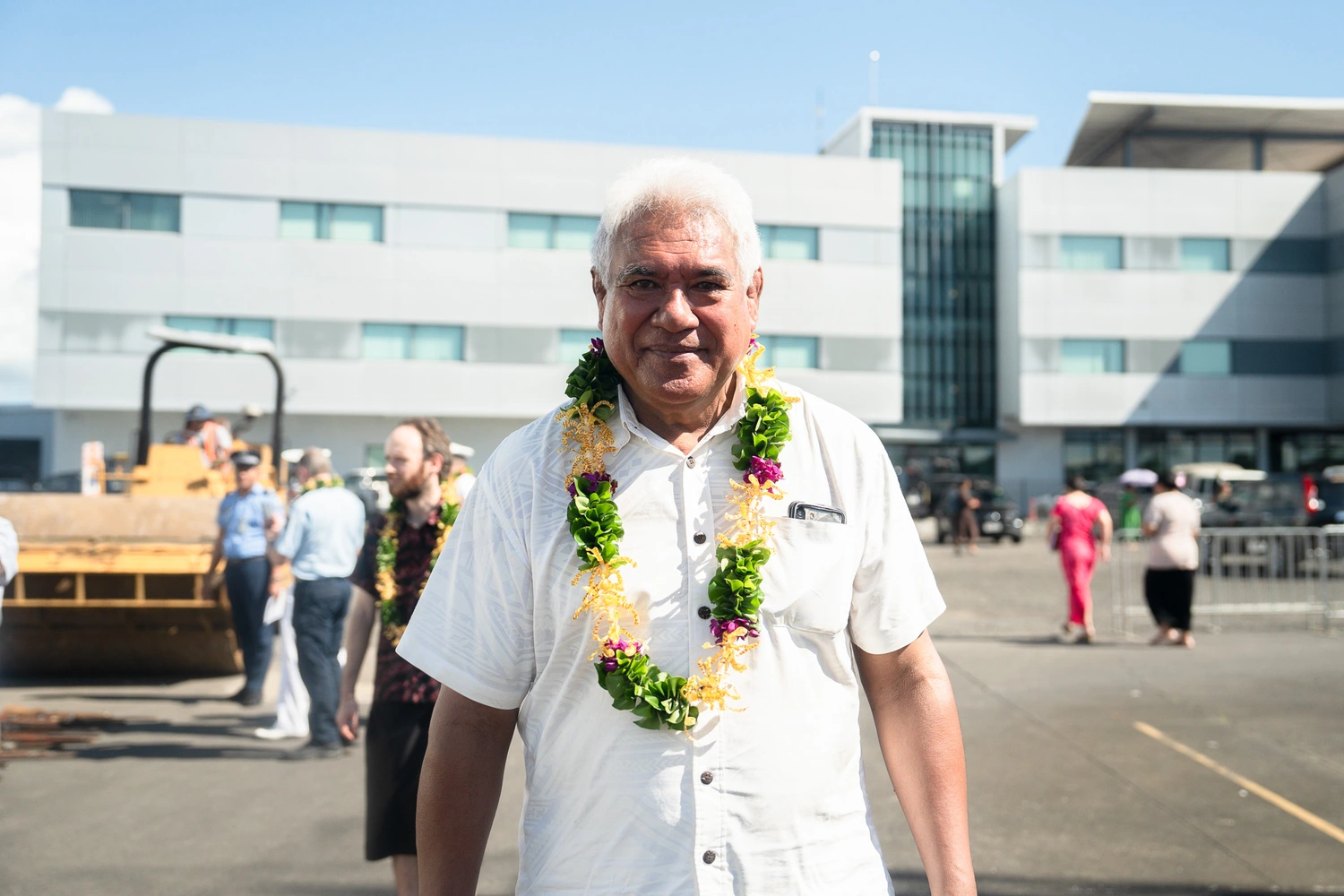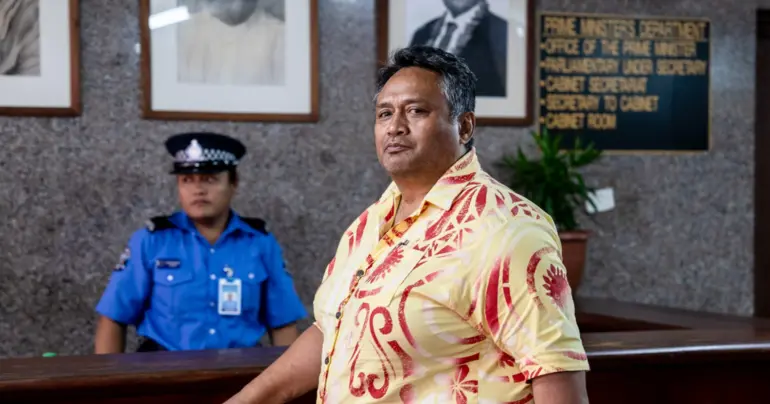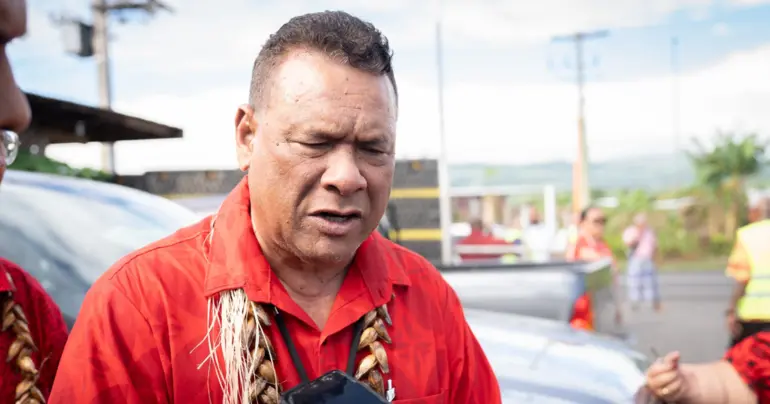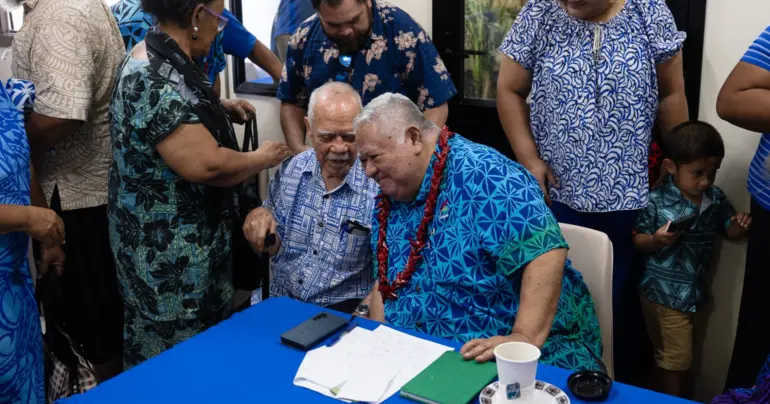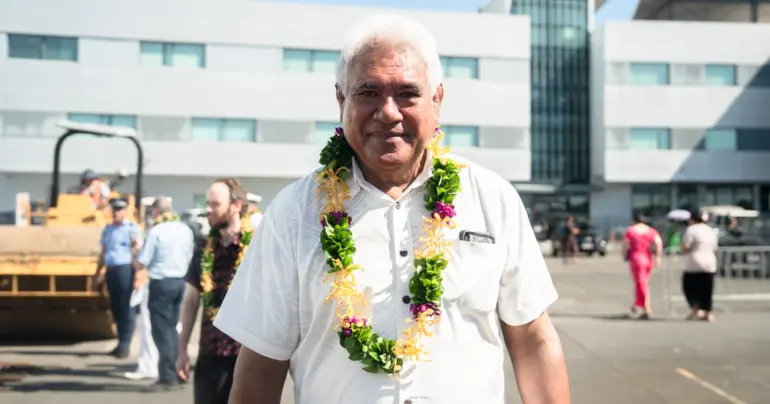Respect for the rule of law
As citizens of a free democratic Samoa, we are born free but not equal. Different physical, mental traits, circumstances and backgrounds render us different and unequal. Some are tall, some are short, some are intelligent, some are not so, some are wealthy, some are just scraping by. Although these prevent us from being equal in all respects, the one area that provides equality for all is the Law.
The Constitution of Samoa protects all citizens from inequality. It declares and guarantees our God given freedoms and rights to be all equal under the Law. Article 15 states, “All people are equal before the Law and entitled to equal protection of the Law”. Equal protection entitles us to equal treatment, access, opportunity, but also to the same punishment as anyone else if we violate the Law.
The realisation, use and protection of our freedoms and rights depends entirely on us respecting and upholding the Rule of Law, especially those who lead and govern us. The declaration and existence of our rights are of no value if those in authority do not respect and follow the Rule of Law.
The first official decision and action by the Honourable Prime Minister Laauli Leuatea Fossie Schmidt upon being sworn in as Prime Minister was the selection of his Cabinet.
The Constitution, Cabinet Rules, Conventions and Protocols clearly give the Honourable Prime Minister the power to select whoever he wants and allocate to each one the Government body they will head as Minister.
However, prior to selecting his Cabinet, the Prime Minister was aware of the following;
a) there were existing criminal charges against him that had been heard by the court but were awaiting a decision on the charges,
b) there were criminal charges against him already filed before the court scheduled for hearing, and
c) there were charges against him being prepared by the police and the Attorney General’s Office pending filing before the court.
Being fully aware and having full knowledge of these facts, the Honourable Prime Minister Laauli Leauatea Fossie Schmidt chose himself to be the Minister of Police and the office of the Attorney General. He clearly has the power to do this and appoint himself as the Minister of Police and the office of the Attorney General. However, the law as well as the ethics of the law also requires that a decision maker in Government should not make a decision that places him or her in a position that is a conflict of interest, whether it is perceived, actual or apprehended conflict.
This legal guidance exists to ensure the equality of treatment in all decisions and actions administered by the Government, and the environment is neutral and not influenced by any factor or person.
The Constitution and cabinet conventions do not state that the Prime Minister should also appoint himself/herself to be the Minister for Police and the Office of the Attorney General because they are the Prime Minister. In fact, and in Law, the Prime Minister had a choice.
By deciding to be the Minister of Police and the Office of the Attorney General, the Prime Minister has placed himself in an actual conflict of interest, as there are criminal charges against him. Acting in this manner, the Prime Minister has apprehended the environment in which the Police and the Attorney General function, in turn influencing them in the (independent) administration of the duties and responsibilities of the Ministry of Police and the Attorney General’s Office.
The decision and action by the Prime Minister to be Minister of Police and the Attorney General’s Office is a deliberate choice. A choice that is not in accordance with the Law, the principles and the ethics of the Law. This choice from the outset indicates the Prime Minister’s declaration that he is not equal to everyone nor is anyone in Samoa equal to him under the Law. In other words, that he is above the Law.
The Honourable Prime Minister is the only person in Samoa who could make the decision he has made because of the position he holds. He had a choice to decide and appoint someone else as Minister of Police and the Office of Attorney General, whilst all criminal charges against him are pending resolution under the Law. However, the Prime Minister has exercised his discretion to grant himself an advantage not available to any other ordinary citizen of Samoa facing criminal charges.
The second official change made by the Prime Minister and his Executive was through the new Government policy governing the one million tala project, in which only people who competed as candidates in the last election will be eligible to apply for the position of Chairperson of the Fono Faavae.
The Chairperson and the Fono Faavae are responsible for administering, distributing and accounting for the one million tala of public funds granted by the Government for this project.
The position of Chairperson is a government position established by the Government and funded with public funds allocated by Parliament.
Being a body established and funded by the Government, Article 15 of the Constitution applies to it. Article 15 which as noted above guarantees equal treatment under the law and states that “Government shall not pass any law, make a decision or make any executive or administrative decision that confers on any person or persons any privilege or advantage on grounds of descent, sex, language, religion, political or other opinion, social origin, place of birth, family status or any of them”.
Contrary to the Law, this new Government policy confers a privilege and advantage on a specific group, namely, persons who ran in the last elections. The policy limits the choice of selecting a chairperson from one very restricted and finite group of persons, thereby granting them an advantage and privilege which discriminates against all other persons who have the skills and could perform the task of chairing the Fono Faavae.
The former policy on the sitting member of the constituency automatically chairing the Fono Faavae was premised on the principle that, as the one million tala project is a development initiative for the constituency, the person whom the constituency has elected is the appropriate person to chair the Fono Faavae to administer the project for that constituency.
In this case, the Government has made a deliberate choice and executive decision to narrow down the choice of people who could be chosen to be chairperson with complete disregard for the equal treatment under the law requirement of Article 15.
The one million tala project is funded with public funds for the benefit of the people of the electoral constituency and should be open to all people of the constituency who have the skills and ability to be chairperson to apply.
This executive decision by the FAST Government to limit eligibility to apply for chairperson to only those who ran in the elections is a deliberate choice. A choice that is not in accordance with the Law. A choice that treats people unequally by conferring a special advantage and privilege to only those who were candidates in the election. Furthermore, those who ran as candidates in the election would have a distinct advantage in numbers in cases where some parties had more candidates than others, increasing their chances of selection.
The deliberate choice and decision to limit the selection to a limited class of people favours the FAST party being the party in Government.
Lastly, these choices and executive decisions by the FAST Government also create inequality in terms of the appointments of people into public positions. This is the only instance in which public positions funded with public money are being advertised and given only a week in which to apply. Although the number of eligible candidates is limited, there is also the perception that the calling for expressions of interest from a limited group is purely for appearances' sake, because appointments are deliberately targeted to increase support and influence of the FAST Party and Government.
In addition to the inequality of treatment issue, there is the fact that the advertisement does not specify the skill set required to be a chairperson. Being a candidate is a status, not a qualification. It is merely a person who exercised their right to run as a candidate in the last elections.
We are all citizens of Samoa who are governed by one law under which we expect equal treatment and have a reasonable expectation that the leaders who govern us will respect and act in accordance with the Law. To assess character, values, intention, motives and belief, it is necessary to also consider the actions, behaviour and decisions of a person rather than the words they speak.
Sadly, the choices made by the Prime Minister and his Government indicate a lack of respect for the Rule of Law, disregard for the principles of equality and especially every Samoan citizen’s expectation to be governed by leaders with integrity and honesty.
Faualo Harry Jeffrey Schuster.




